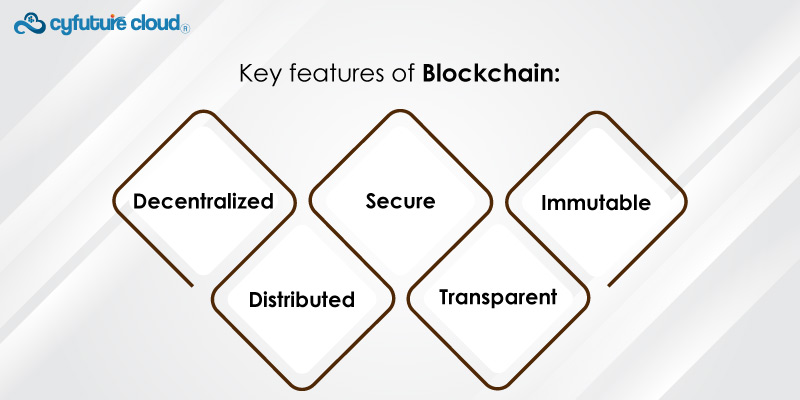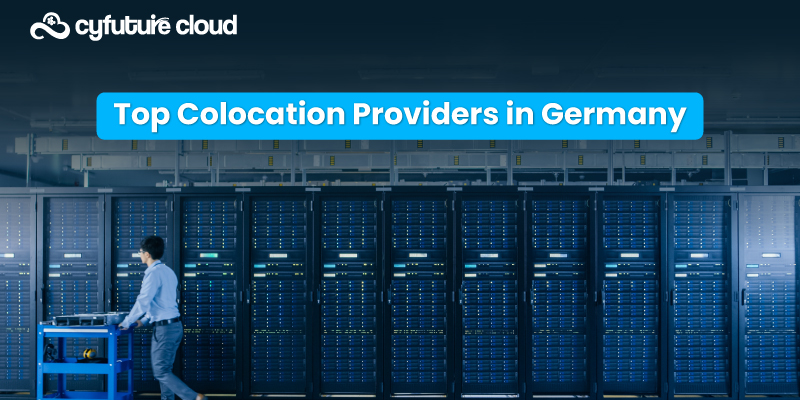Table of Contents
Blockchain technology is a decentralized and distributed digital ledger that is used to record transactions across a network of computers. It is secure and transparent, as each block in the chain contains a record of multiple transactions and is linked to the previous block using a cryptographic hash. Cloud technology, on the other hand, refers to the delivery of computing services—including servers, storage, databases, networking, software, analytics, and intelligence—over the Internet (“the cloud”) to offer faster innovation, flexible resources, and economies of scale.
Understanding the relationship between blockchain and cloud is important because combining the two technologies can provide a number of benefits. For example, by using cloud technology to support blockchain, businesses can reduce the costs and improve the scalability of their blockchain systems. Additionally, blockchain can be used to enhance the security and integrity of data stored in the cloud.
Some of the benefits of blockchain on cloud integration include:
- Improved security and data integrity
- Increased scalability and cost efficiency
- Enhanced transparency and traceability
- Greater automation and faster transactions
- More secure and efficient supply chain management
Read the blog to get more details!
What is Blockchain?
Blockchain is a decentralized and distributed digital ledger that is used to record transactions across a network of computers. It is a continuously growing list of records, called blocks, which are linked and secured using cryptography. Each block typically contains a cryptographic hash of the previous block, a timestamp, and transaction data.
Key features and properties of blockchain include:

- Decentralized: Blockchain is not controlled by a single entity, but rather is maintained by a network of computers.
- Distributed: The data on a blockchain is stored on multiple computers, making it difficult to tamper with or corrupt.
- Secure: Blockchain uses cryptography to secure the data and ensure that transactions cannot be tampered with.
- Transparent: Blockchain allows for transparency, as all transactions are recorded on a public ledger that can be viewed by anyone on the network.
- Immutable: Once data is recorded on a blockchain, it cannot be altered, making it a tamper-proof record.
Use cases and applications of blockchain include:
- Digital currencies, such as Bitcoin and Ethereum
- Supply chain management
- Secure voting systems
- Smart contracts
- Digital identity management
- Financial services, such as remittances and cross-border payments
- Real estate and property records
- Healthcare, such as electronic medical records and clinical trials
- Internet of Things (IoT) and sensor data management
- Gaming and digital collectibles.
What is Cloud Computing?
Cloud computing revolutionizes computing services by delivering a comprehensive suite—including servers, storage, databases, networking, software, analytics, and intelligence—via the Internet (“the cloud”). This approach fosters rapid innovation, offers flexible resource allocation, and benefits from economies of scale. Users gain on-demand access to these services without the burden of costly infrastructure investment or management responsibilities.
Types of cloud services:
- Infrastructure as a Service (IaaS): Provides access to computing resources, such as servers and storage, over the internet.
- Platform as a Service (PaaS): Provides a platform for developers to build, test, and deploy their applications.
- Software as a Service (SaaS): Provides access to software applications over the internet.
Advantages of using cloud computing include:
- Scalability: Cloud services can be easily scaled up or down to meet changing demands.
- Cost-effectiveness: Cloud services are often more cost-effective than maintaining on-premises infrastructure.
- Flexibility: Cloud services can be accessed from any location with an internet connection.
- High availability: Cloud providers typically have multiple data centers and use redundancy to ensure that services are always available.
- Automatic software updates: Cloud providers often handle software updates and maintenance, allowing users to access the latest versions without having to worry about installation or upgrades.
- Improved collaboration: Cloud services enable remote teams to easily access and share files and resources.
How Blockchain and Cloud Complement Each Other?
Let’s have a quick look at how block chain on cloud computing is a perfect example of harmonious and beneficial blend:
Security and immutability: Blockchain technology provides a secure and immutable platform for storing data and conducting transactions. The decentralized nature of the blockchain ensures that no single point of failure exists, and transactions are recorded across multiple nodes on the network. Cloud computing, on the other hand, provides a flexible and scalable infrastructure for storing and processing data. When combined, blockchain and cloud technology can provide a secure and immutable platform for storing and processing data in the cloud.
Decentralization and scalability: Blockchain technology is inherently decentralized, with no central authority controlling the network. This decentralization allows for increased security and resilience against attack. Cloud computing, on the other hand, provides scalability, allowing for the rapid expansion and contraction of resources as needed. When combined, blockchain and cloud technology can provide a decentralized and scalable platform for conducting transactions and storing data.
Transparency and efficiency: Blockchain technology provides transparency, as all transactions are recorded on a public ledger that can be viewed by anyone. Cloud computing, on the other hand, provides efficiency, as resources can be shared and utilized by multiple parties. When combined, blockchain and cloud technology can provide a transparent and efficient platform for conducting transactions and storing data.
Real-world examples and use cases: Blockchain and cloud technology are being used in a variety of industries and applications. For example, in the supply chain industry, blockchain and cloud technology are being used to create a transparent and efficient system for tracking the movement of goods. In the financial industry, blockchain and cloud technology are being used to create a secure and immutable platform for conducting transactions and storing data. Additionally, the combination of blockchain and cloud technology is also being used in healthcare, logistics, and many other sectors.
Challenges & Solutions
Blockchain on cloud integration also have certain challenges such as:
Interoperability and integration: One of the main challenges facing the integration of blockchain and cloud technology is interoperability. Different blockchain platforms and cloud providers may use different protocols and standards, making it difficult to integrate them seamlessly. This can lead to increased complexity and cost. One solution to this challenge is the use of standardized protocols and APIs, which can help to facilitate interoperability between different blockchain platforms and cloud providers. Additionally, the use of hybrid blockchain and cloud solutions, which combine the best features of both technologies, can also help to overcome this challenge.
Data privacy and governance: Another major challenge facing the integration of blockchain and cloud technology is data privacy and governance. The decentralized nature of blockchain networks can make it difficult to manage access to data and ensure compliance with data privacy regulations. One solution to this challenge is the use of private or permissioned blockchain networks, which can be used to restrict access to data and ensure compliance with data privacy regulations. Additionally, the use of smart contracts and decentralized governance can also help to ensure data privacy and governance in blockchain and cloud environments.
Cost and complexity: The integration of blockchain and cloud technology can be costly and complex. Blockchain networks require significant resources to maintain, and cloud providers often charge for the use of their services. Additionally, the integration of different technologies can increase the complexity of the overall system. One solution to this challenge is the use of cost-effective blockchain platforms and cloud providers, which can help to reduce the cost and complexity of integration. Additionally, the use of blockchain as a service (BaaS) can also help to reduce the cost and complexity of integration.
Solutions to overcome these challenges: The integration of blockchain and cloud technology can be challenging, but there are solutions available to overcome these challenges. These solutions include the use of standardized protocols and APIs, hybrid blockchain and cloud solutions, private or permissioned blockchain networks, smart contracts and decentralized governance, cost-effective blockchain platforms and cloud providers, and blockchain as a service (BaaS). Additionally, continuous research and development in the field to improve the technology and solutions to make it more efficient, cost-effective and user-friendly.
Case Studies
Examples of companies that have successfully implemented blockchain and cloud:
– IBM: IBM has successfully implemented a hybrid blockchain and cloud solution called IBM Blockchain Platform, which is built on the IBM Cloud. This platform allows organizations to build, govern and operate blockchain networks with ease. IBM has also partnered with several companies to develop blockchain-based solutions for various industries, including supply chain, finance, and healthcare.
– Microsoft: Microsoft has also successfully implemented a hybrid blockchain and cloud solution called Azure Blockchain Service, which allows organizations to build, govern and operate blockchain networks on the Microsoft Azure cloud platform. Microsoft has partnered with several companies to develop blockchain-based solutions for various industries, including supply chain, finance, and healthcare.
– Amazon Web Services: Amazon Web Services (AWS) has also developed a blockchain-as-a-service (BaaS) offering called Amazon Managed Blockchain, which allows organizations to easily create and manage blockchain networks on the AWS cloud platform. AWS has also partnered with several companies to develop blockchain-based solutions for various industries, including supply chain, finance, and healthcare.
Results achieved: By implementing blockchain and cloud technology, these companies have helped their clients to achieve greater security, transparency, and efficiency in various industries. For example, in the supply chain industry, blockchain and cloud technology have been used to create a transparent and efficient system for tracking the movement of goods. In the financial industry, blockchain and cloud technology have been used to create a secure and immutable platform for conducting transactions and storing data. Additionally, the combination of blockchain and cloud technology has also been used to improve the healthcare, logistics, and many other sectors.
Lessons learned: The companies mentioned above have learned the importance of interoperability and standardization for the successful integration of blockchain and cloud technology. They have also learned that the use of private or permissioned blockchain networks, smart contracts and decentralized governance can help to ensure data privacy and governance in blockchain and cloud environments. Additionally, they have learned that the use of cost-effective blockchain platforms and cloud providers, and blockchain as a service (BaaS) can help to reduce the cost and complexity of integration.
Future of Blockchain and Cloud
The future of blockchain and cloud technology looks promising, as more and more industries are starting to realize the potential benefits of these technologies. As the technology evolves and becomes more advanced, we can expect to see even more innovative use cases and applications of blockchain and cloud technology in various sectors. Additionally, the increasing adoption of blockchain and cloud technology is likely to lead to the development of new standards and protocols, which will further facilitate the integration of these technologies.
Recap of Key Points
Blockchain and cloud technology can complement each other in providing secure, immutable, decentralized and scalable platform for storing and processing data. The main challenges facing the integration of blockchain and cloud technology are interoperability and integration, data privacy and governance, cost and complexity.
Solutions are available to overcome these challenges, such as standardized protocols and APIs, hybrid blockchain and cloud solutions, private or permissioned blockchain networks, smart contracts and decentralized governance, cost-effective blockchain platforms and cloud providers, and blockchain as a service (BaaS). Companies such as IBM, Microsoft, and Amazon Web Services have successfully implemented blockchain and cloud technology to improve various industries.
Final Thoughts
The combination of blockchain and cloud technology has the potential to revolutionize various industries by providing secure, transparent and efficient platforms for conducting transactions and storing data. However, it is important to keep in mind that the integration of these technologies is not without its challenges. To successfully implement blockchain and cloud technology, organizations should focus on interoperability and standardization, data privacy and governance, and cost-effectiveness. They should also keep an eye on the latest developments in the field and adapt their strategies accordingly. Additionally, it is important to consider the regulatory environment and ensure compliance with data privacy laws.
Recent Post
Send this to a friend

 Server
Colocation
Server
Colocation CDN
Network
CDN
Network Linux
Cloud Hosting
Linux
Cloud Hosting Kubernetes
Kubernetes Pricing
Calculator
Pricing
Calculator
 Power
Power
 Utilities
Utilities VMware
Private Cloud
VMware
Private Cloud VMware
on AWS
VMware
on AWS VMware
on Azure
VMware
on Azure Service
Level Agreement
Service
Level Agreement 




















